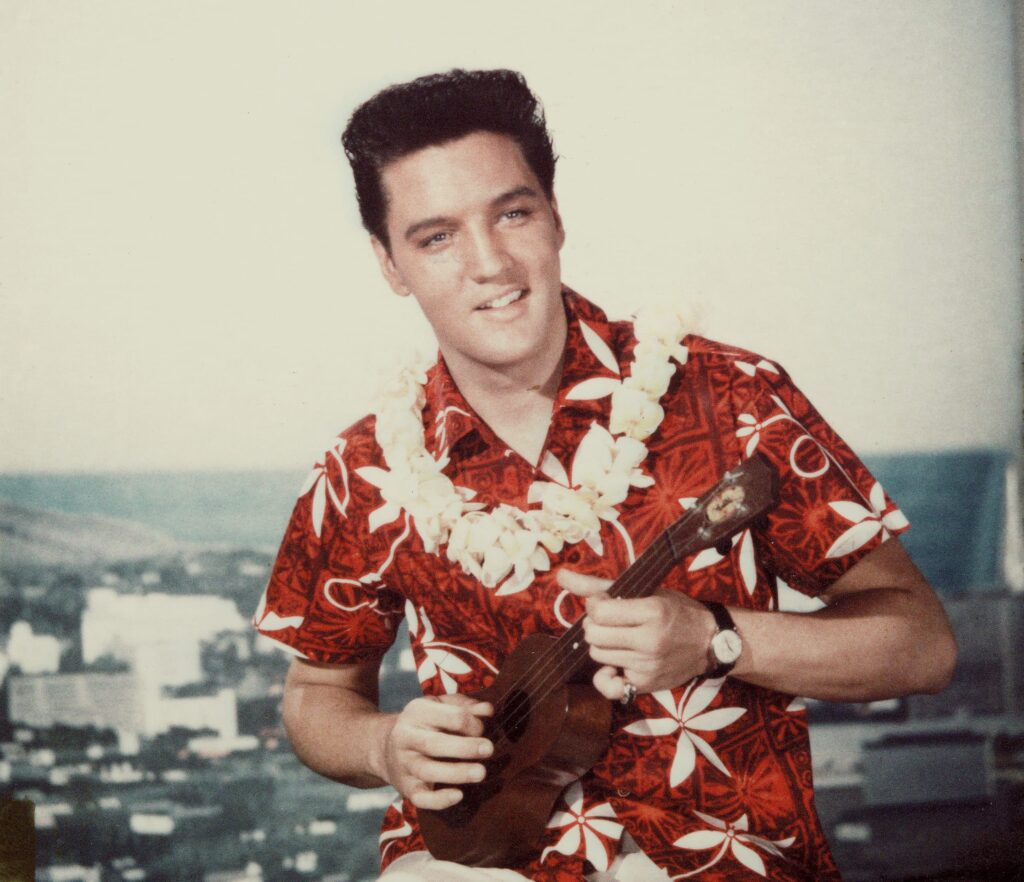
A timeless melody about the irresistible force of love.
There are songs that define a moment, and then there are songs that define a life, a career, and an entire generation’s understanding of romance. For many of us, that song is “Can’t Help Falling in Love” by Elvis Presley. Released in 1961, at the height of his Hollywood years, the song was the cornerstone of the soundtrack for his film Blue Hawaii. It was a gentle, almost whispered promise of love, a stark contrast to the rebellious rock and roll that had made him a sensation. But its soft-spoken nature was its greatest strength, allowing it to become one of the most beloved and enduring ballads of the 20th century.
At the time of its release, the single was a global smash. In the United States, it peaked at number two on the Billboard Hot 100, held back from the top spot only by Joey Dee and the Starliters’ “Peppermint Twist.” However, it achieved what many rock songs couldn’t, spending six weeks at number one on the Adult Contemporary chart. Across the pond, its success was even more pronounced. The single soared to number one on the UK Singles Chart, where it reigned for four weeks, solidifying Elvis’s position as a timeless international superstar. It’s a song that didn’t just top charts; it became a cultural touchstone.
The story behind the song is as much a part of its legend as the melody itself. Written by Hugo Peretti, Luigi Creatore, and George David Weiss, its beautiful tune was, in fact, an adaptation of “Plaisir d’amour,” a classic French love song from the 18th century. When it was presented to Elvis and his producers for the Blue Hawaii soundtrack, there was initial resistance. Some felt it was too much of a ballad, not “rock and roll” enough for the King. But Elvis himself reportedly heard the demo and insisted on recording it, a testament to his innate musical instincts. He saw its potential, its quiet power, and its timeless appeal, and he was right. The song was originally written with a woman in mind, titled “Can’t Help Falling in Love with Him,” which is why the lyrics end with “in” and “sin”—a lyrical oddity that only adds to its unique charm.
The meaning of “Can’t Help Falling in Love” is deceptively simple. It begins with the familiar, cautionary words, “Wise men say only fools rush in.” It acknowledges the societal wisdom of taking things slow, of protecting your heart. But then, with a profound sense of surrender, it dismisses that wisdom. “But I can’t help falling in love with you.” It’s a song about the surrender to fate, to an emotion so powerful it feels like a force of nature. “Like a river flows surely to the sea,” Elvis sings, comparing the inevitability of his love to the natural world. It’s a beautiful, poetic statement that love is not always a choice, but a destiny. The song feels like a gentle caress, a quiet and profound declaration that for some things, there is no fighting back, only acceptance.
For those of us who grew up with this song, it evokes so many memories. It was the background to first dances, wedding anniversaries, and countless quiet moments of shared affection. It became the closing song for many of Elvis’s concerts in his later years, a fitting finale that captured the essence of his artistry—a man who could fill an arena with an emotional fragility that was a thousand times more powerful than any loud chord. The song is a living, breathing testament to the power of a simple, honest melody. It remains a poignant reminder of a time when love songs were a universal language, spoken with a sincerity that echoes through the decades.